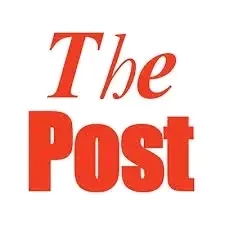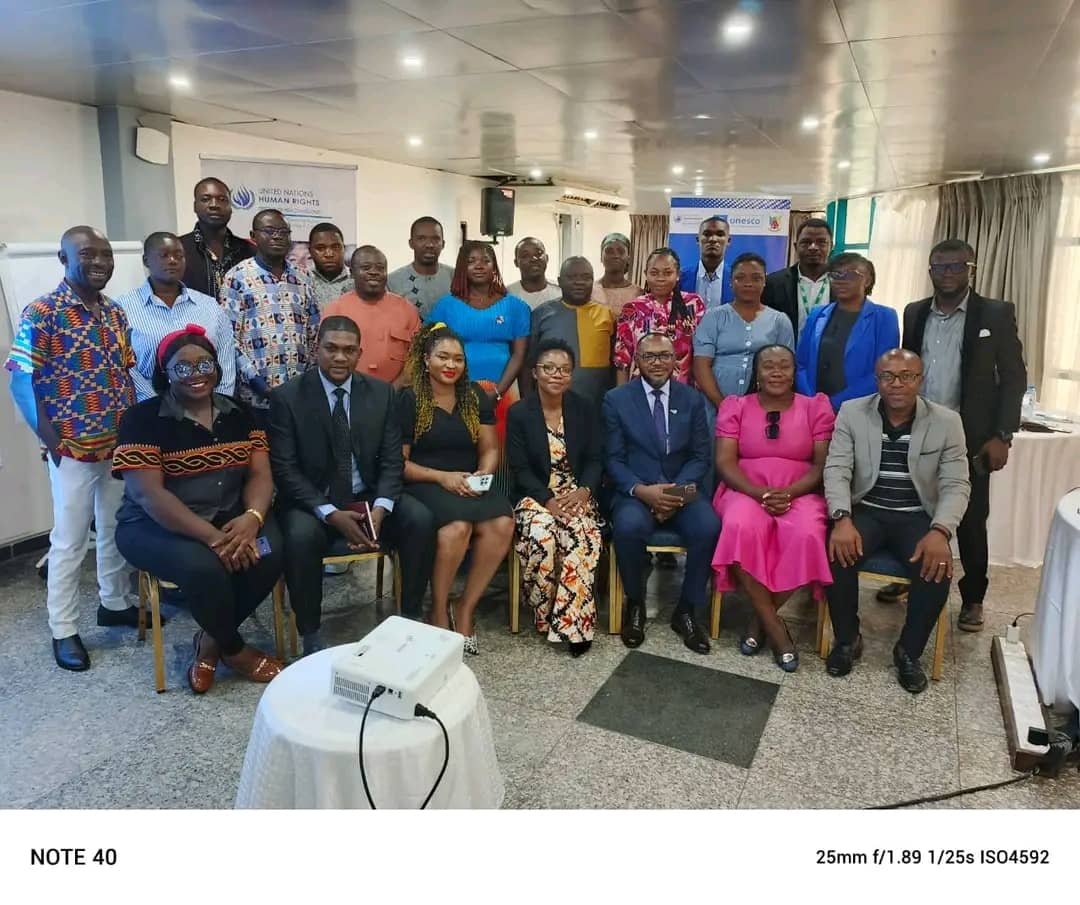Trainers, Facilitator, Trainees pose for camera
By Njodzeka Kernyuy
Cameroon’s upcoming presidential election on October 12, 2025, and the subsequent municipal and legislative elections in 2026 are high-stakes events often marred by violence and human rights violations. To mitigate these risks, the United Nations Centre for Human Rights and Democracy in Central Africa (UNCHRD-CA) is taking proactive measures.
From August 12 to 14, the UNCHRD-CA held a workshop in Douala, Littoral Region, training media professionals on human rights monitoring during electoral periods.
The three-day session brought together nearly 30 journalists, bloggers, and media practitioners from the Centre, Littoral, and South-West regions. Participants were equipped with essential skills, including fundamentals of human rights and elections; identifying and documenting rights violations; ethical reporting during elections; safety measures for covering tense electoral processes; best practices for interviewing political and electoral actors; and amplifying marginalised voices.
The UNCHRD-CA expects these newly trained journalists to foster informed public decision-making, promote responsible reporting, and hold human rights violators accountable.
“Electoral periods are sensitive,” emphasised Fonyuy Kiven, Human Rights Officer at UNCHRD-CA. To him, reporting during elections goes beyond basic news coverage, so, journalists must consider context, impact, and stability.
Kiven urged participants to prioritise peace, even if it means withholding potentially harmful information. “A journalist’s role isn’t just to inform but to contribute to stability,” he said, stressing that without peace, the right to vote becomes meaningless.
Everything, he said, hinges on human rights, especially freedom of movement, assembly, and expression.
Journalists must not only promote these rights but also identify violations, Kiven said.
Interactive & Practical Learning
The workshop featured field cases tailored to Cameroon’s electoral challenges, allowing journalists to discuss field obstacles with trainers, including UN Centre experts and Cameroon Association of Media Professionals.
Participants engaged in simulation exercises, practising real-time reporting on fast-evolving situations with a human rights lens. They also drafted stories, receiving feedback on strengths and areas for improvement.
By the workshop’s end, attendees expressed confidence in applying their new skills ahead of the presidential election. While acknowledging their dual roles as citizens and journalists, they pledged to uphold impartiality and truth in their reporting.

